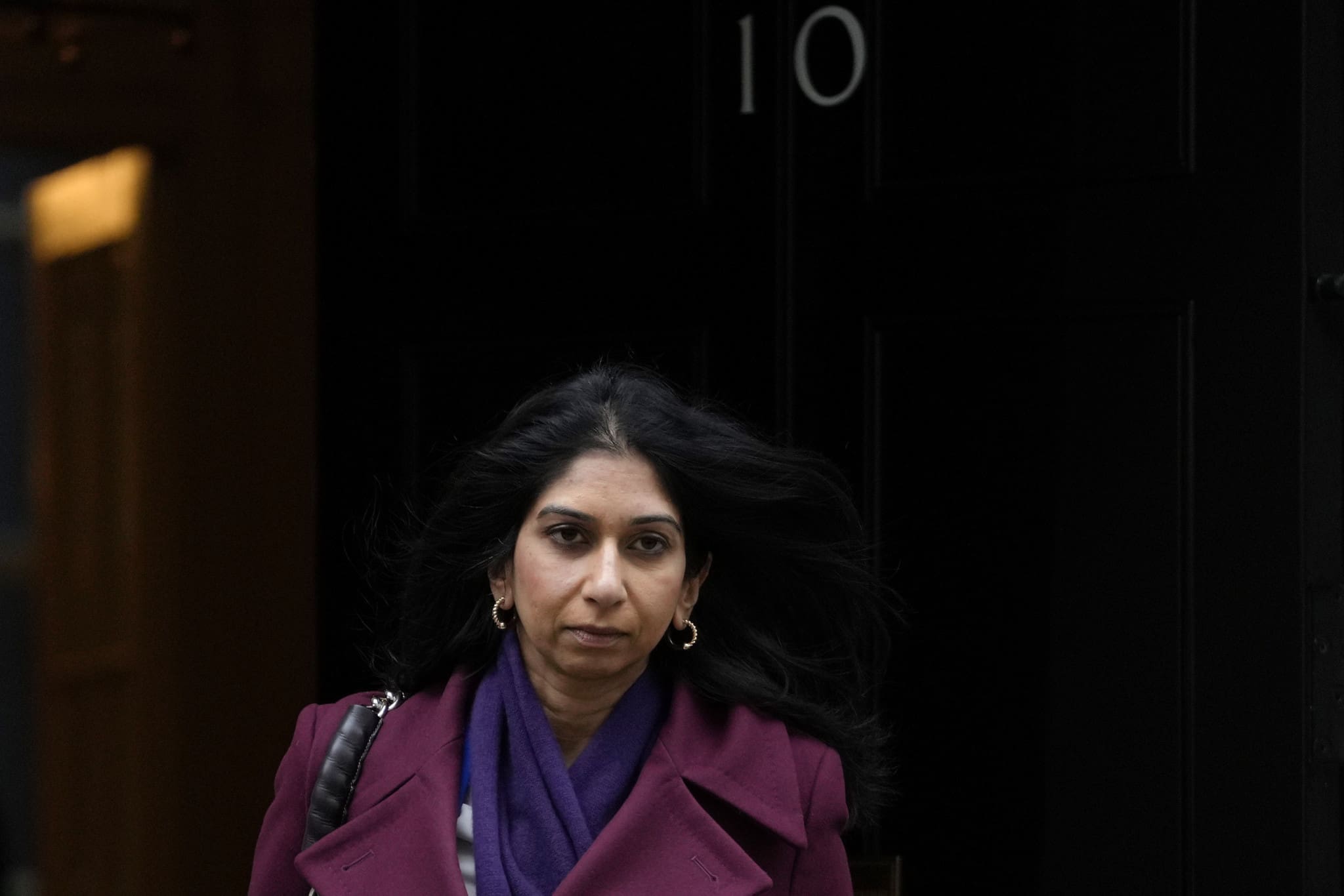The U.K. government has introduced new legislation to ban anyone arriving in the country illegally from claiming asylum in an attempt to reduce the record numbers of migrants crossing the English Channel to reach British shores.
The bill will give authorities the power to detain without bail or judicial review anyone who crosses into the country without a right to do so within the first 28 days of entry, and individuals will remain in detention until they can be legally deported.
Migrants will be deported back to their country of origin, or if this is not safe, to a safe third country such as Rwanda with whom Britain has an agreement to deport asylum applicants for processing.
The bill will see everyone who arrives illegally deported offshore, and those who are found to have a valid asylum claim will have their application considered remotely.
The only exceptions relate to minors and those with serious medical conditions who will be able to delay removal.
The legislation will also introduce an annual cap on the number of refugees Britain will accept via safe and legal routes.
The Illegal Migration Bill was announced by Home Secretary Suella Braverman in the House of Commons on Tuesday morning, where she told parliamentary colleagues the government is taking swift action to “stop the boats.”
[pp id=67285]
“They will not stop coming here until the world knows that, if you enter Britain illegally, you will be detained and swiftly removed,” she told the House.
“Removed back to your country, if it’s safe, or to a safe, third country like Rwanda. That is precisely what this bill will do. That is how we will stop the boats.”
It puts a legal duty on the Home Secretary to remove illegal entrants and will “radically narrow the number of challenges and appeals that can suspend removal,” Braverman informed the House.
“Only those under 18, medically unfit to fly, or at a real risk of serious and irreversible harm in the country we are removing them to will be able to delay their removal. Any other claims will be heard remotely after removal,” she added.
Braverman insisted she was confident the bill will be compatible with international obligations, namely the European Convention on Human Rights and the domestic Human Rights Act 1998. However, she was unable to offer a guarantee of its compliance due to the approach toward tackling illegal immigration being “robust and novel.”
“This does not mean the provisions in the bill are incompatible with the Convention rights, only that there is a more than 50 percent chance that they may not be,” she revealed.
She concluded with her assessment of the British public as being a “fair and patient people” whose “sense of fair play has been tested beyond its limits,” and vowed to deliver legislation to ensure Britain was no longer being “taken for a ride.”
[pp id=39494]
Shadow home secretary, Yvette Cooper, responded to Braverman’s statement in the House of Commons by reminding the governing Conservative party this almost-identical rhetoric had been expressed by Braverman’s predecessor, Priti Patel, and the government had promised a similar crackdown in previous legislation which had been unsuccessful.
Cooper explained that, as the U.K. no longer has return agreements in place with certain countries following its withdrawal from the European Union, of the 18,000 individuals ruled to be inadmissible for asylum in Britain last year, just 21 were returned to their countries of origin.
“We can’t afford any more slogans and not solutions, government by gimmick, ramping up the rhetoric on refugees but picking fights simply to have something else to blame when things go wrong,” Cooper said in response, calling the proposed legislation “a con that risks making the chaos worse.”
The number of migrants arriving on England’s south coast has soared by over 500 percent in the last two years, reaching a record 45,000 last year.
The asylum backlog in Britain has now reached over 160,000 stretching back multiple years, and the cost of accommodation and processing for asylum seekers awaiting an asylum decision has reached £3 billion (€3.37 billion) a year.
Government figures show that many of the 45,000 to arrive last year originated from declared safe countries such as Albania, and almost all passed through France. Braverman told the Commons that 74 percent of new arrivals in 2021 were adult males under the age of 40 who had paid thousands of pounds to people smugglers for safe passage.
[pp id=57329]
The government believes the new bill is the only way to deter people from making the perilous journey across one of the world’s busiest shipping lanes to reach Britain. However, pro-refugee groups claim the legislation will contravene international obligations including the Refugee Convention and the European Convention on Human Rights.
On the front page of the bill published on Tuesday afternoon, Braverman says, “I am unable to make a statement that in my view the provisions of the Illegal Migration Bill are compatible with convention rights, but the government nevertheless wishes the house to proceed with the bill.”
It is likely the legislation will be challenged in the courts and could potentially pave the way for the British government to reform domestic human rights legislation and potentially leave the European Convention on Human Rights, a move a number of backbench Conservative MPs have advocated in favor of for a number of years.






